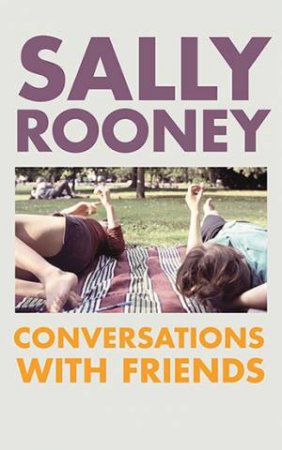

That the lengthy messages between Frances and Bobbi are instead relayed as voice-overs emphasises the deeper roots of this friendship over the stilted affair, which is the weak link of this adaptation. The show excels at translating the novel’s reliance on texts and emails to the screen, and Oliver manages to maintain interest throughout the many scenes where she anxiously taps out texts to Nick and waits for him to respond.

Her opposite number, Lane’s newly Americanised Bobbi, brings the best out of her as the volatile power dynamic between them fluctuates. Oliver is captivating as a young woman tentatively pushing the boundaries of early adulthood – but it starts to feel claustrophobic to be so entrenched in her viewpoint, from which the story is told. Inevitably the consequences of this romantic exploration begin to surface in Nick and Melissa’s slowly rupturing marriage, Frances’s and Bobbi’s intense best friendship, and Frances’s own burgeoning sense of identity. At a performance of their feminist poetry, they meet Melissa ( Jemima Kirke), a thirty-something writer who invites the pair into the sophisticated life she shares with husband Nick (Joe Alwyn).Īs the foursome become entangled, Bobbi develops a crush on confident Melissa while Frances is drawn to Nick, a handsome but aimless actor with whom she begins a dangerous affair. A messy criss-cross of desire, jealousy and pride, Conversations with Friends centres on Frances, an unassuming literature student played by newcomer Alison Oliver, and her outgoing and forthright best friend and ex-girlfriend, Bobbi ( American Honey’s Sasha Lane). The sex scenes are hazy, breathy and beautifully authentic.īut Rooney’s first novel is a more complicated proposal than Normal People’s quiet yet searing love story, which was so easy to root for. No one says exactly what they mean, instead communicating via meaningful looks, flickering facial expressions, and halting half-sentences that ache with longing.

With director Lenny Abrahamson once again at the helm of a Sally Rooney adaptation, there can be no mistaking that Conversations with Friends is rooted in the Rooniverse established by its uber-successful sibling, Normal People: a dreamlike Dublin, alternately drizzly and sun-dappled, filled with intellectuals whose idea of a casual chat means dissecting capitalism, the institution of marriage, and the cultural value of the written word.


 0 kommentar(er)
0 kommentar(er)
